Washington: US President Donald Trump's extended, rambling new interview with The New York Times provides perhaps the clearest picture yet of his conviction that he is above the law - a conviction, crucially, that appears to be deeply felt on an instinctual level - and of his total lack of any clear conception of the basic obligations to the public he assumed upon taking office.
There are numerous worrisome moments in this interview, from his incoherence on the healthcare debate ("pre-existing conditions are a tough deal") to his odd asides about history (Napoleon "didn't go to Russia that night because he had extracurricular activities, and they froze to death"). But I wanted to highlight the sum total of the picture that results from three things Trump said.
More World News Videos
'Don't leave town' Trump blasts GOP senators
'Work out your differences', US President Donald Trump urges Republican senators to pass healthcare legislation before leaving Washington for their August recess.
- Trump flatly declared that if Attorney-General Jeff Sessions had told him in advance that he would recuse himself from the Russia probe, "I would have picked somebody else." Just as bad, Trump also said that Sessions' recusal was "very unfair to the president" ie. unfair to him.
- Trump said clearly that if special counsel Robert Mueller is examining his family's finances, he would view that as an abuse of his role. While Trump declined to say whether he would try to get Mueller removed, he said he would view any such overstepping as a "violation".
- In at least two exchanges, Trump was asked directly about the fact that Donald Trump jnr's email chain showed that the information offered to his campaign in advance of the now-notorious meeting came from the Russian government. In one of them, he strongly suggested that being open to such information was no biggie. In the other, he dismissed the offer itself as "standard political stuff".
First, Sessions. The attorney-general recused himself from overseeing the FBI probe into Russia's undermining of our election, and possible Trump campaign collusion with Russia, because it had become obvious that he could not preside over an impartial investigation, given the lack of clarity around his own dealings with Russia while serving on the Trump campaign.
Reading this interview, I think it is not clear that Trump even grasps the idea that the public deserves an investigation that follows rules and procedures designed to bolster confidence that it will be impartial.
Benjamin Wittes, founder of the Lawfare blog, aptly denounces Trump's "monomaniacal view of the relationship between the president and law enforcement", in which the latter is there to "serve" the former.
I would add that the Russia investigation is not just about Trump. It is also about democracy. Trump often appears unable to disentangle questions about Russian electoral sabotage - which, remember, was intended to undermine public faith in our elections, in the words of our intelligence services - from questions about his campaign's possible collusion in it.
Aside from the collusion question, Trump often seems hamstrung by megalomania from grasping that a full accounting into the whole affair is an imperative to restore public trust and confidence in our democracy. It can only be about an effort to get him.
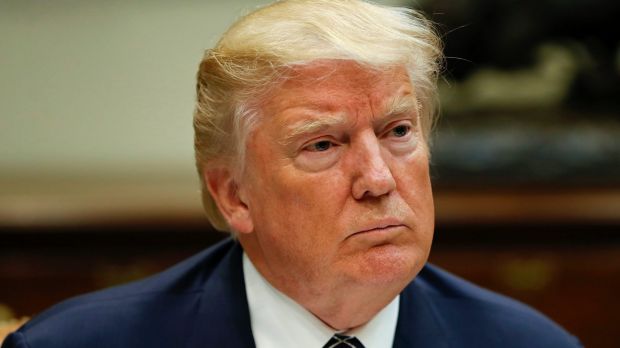
All this spills over into his comments about Mueller. Trump appears to understand that he cannot be seen saying that he will seek Mueller's removal if he asks too many impertinent questions. But it's not clear he grasps how serious such a move would be as an abuse of power.
Trump, of course, fired then FBI director James Comey after demanding his loyalty.

During the Times interview, Trump flatly asserts that Mueller should "never have been appointed" and justifies the Comey firing by recounting that Deputy Attorney-General Rod Rosenstein gave him that memo criticising Comey's handling of the Hillary Clinton probe.
But remember, the special counsel was appointed because Trump abused the process in firing Comey: The White House initially claimed, falsely, that it was because of Rosenstein's memo, then Trump admitted on national television that it was due to the Russia probe, revealing a possible effort to create a cover story for that firing, leading to the Mueller appointment.
In the interview, Trump blithely alludes to this when he says: "Perhaps I would have fired Comey anyway, and it certainly didn't hurt to have the letter." In other words, yes, the letter might actually have been a cover story for the firing! There is no apparent recognition of why this might be a cause for concern.
In this context, Trump's suggestion that Mueller had better refrain from looking at his family is startling. It has already been reported that Trump mulled trying to oust Mueller, until his staff talked him out of it - and worse, that staff members still aren't sure he won't do this in the future. In this interview, Trump sees no need to reassure the public that proper processes will be adhered to, in order to preserve the public trust (a quaint concept, clearly).
Now, Trump's comments about the Russia meeting. As former prosecutor Andrew McCarthy has written, the key to understanding this meeting is to put aside whether such eagerness to collude was illegal. The more important point is that it reveals a contemptuous prioritisation of winning at all costs over the baseline need to show allegiance to our system of government. This was public misconduct. But in the Times interview, Trump basically confirmed that he sees no problem with what happened - even after being confronted directly with the fact that the info was advertised to his campaign as coming from the government of Russia.
Ultimately, the picture that emerges from this interview is this: Trump has done no evident reflection on the obligations to the public that accompany the massive public authority that has been entrusted to him. He has no clear sense of why it is even desirable, as a matter of public trust, to demonstrate respect for the norms and procedures that are meant to safeguard against abuses of that authority.
I know that sounds prim and stuffy and perhaps even obvious, given all the madness we've already seen from Trump. But it still matters, and to see it displayed so nakedly is more unsettling than usual.
Washington Post

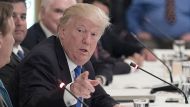

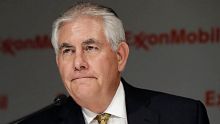



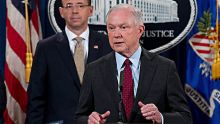

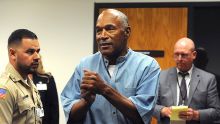





44 comments
New User? Sign up